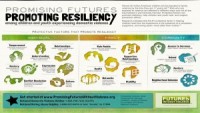
Intimate partner violence can directly impact reproductive and sexual health—increasing risk for unintended pregnancies and abortions, miscarriage, and sexually transmitted infections.
With one in four women at risk for abuse in her lifetime, domestic violence is more common than other …
For almost two decades, the National Health Resource Center on Domestic Violence (HRC) has supported health care professionals, domestic violence experts, survivors, and policy makers at all levels as they improve health care’s response to domestic violence.
The HRC …
Studies suggest that 15.5 million children in the U.S. witness domestic violence annually and by age 17, over one-third of America’s children will have been exposed to domestic violence.
Exposure to violence at an early age is linked to health …
The Communications X-Change is an innovative website that enables organizations and activists throughout the world to find, share, and learn from communications material focused on ending violence against women and children. From posters and brochures to viral videos and smartphone …
Creating a world where women and children around the world could live free from violence was Susan Schechter’s dream. As one of the most accomplished and respected leaders in the domestic violence prevention movement, Susan was one of the first …
There are many ways to take action and get involved in your community to help prevent violence against women and children. Here are a few ways to get you started!
There are many ways to …